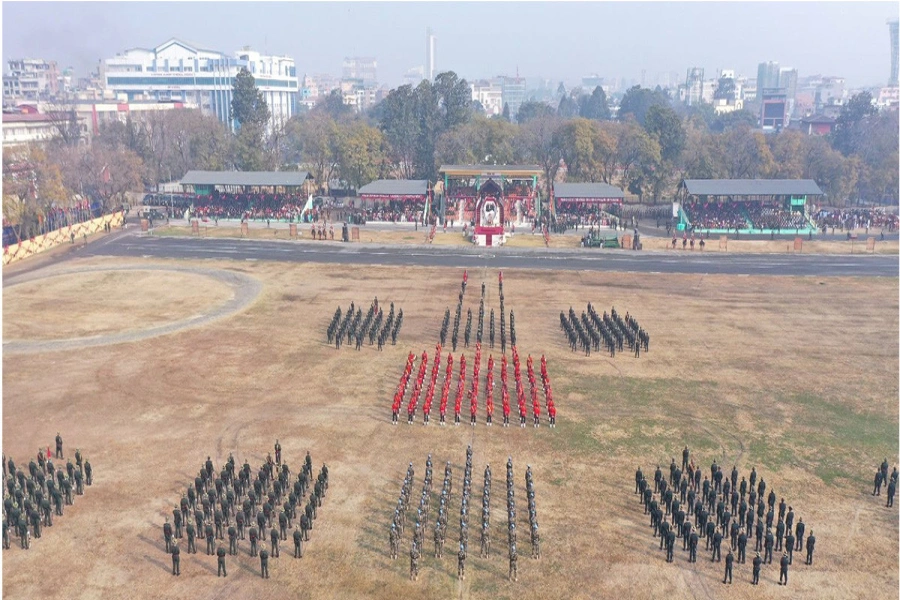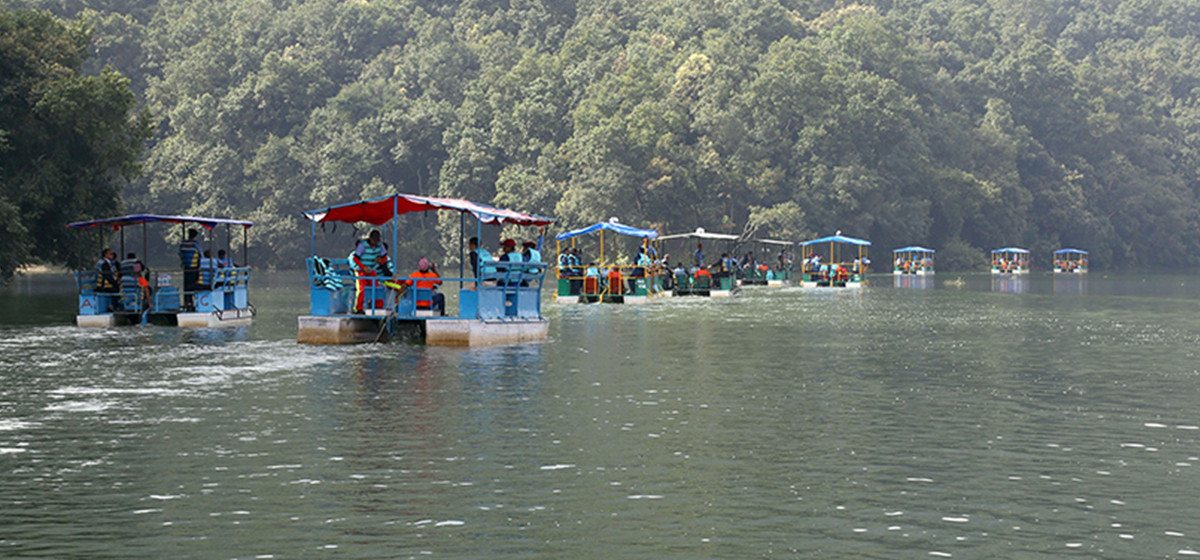“These wild water plants have become too much of a nuisance this time around,” quips Sunita Gurung, a boat operator in the lake town. “How can we possibly row our boats in such a condition?” [break]
The lake has virtually overgrown with thick patches of water hyacinth, besides obstructing the boats and smothering the marine life underneath for the last few weeks.
“Some of us tried to remove these wild plants, but they just grow too fast, Gurung complains. “On the other hand, the concerned authorities are simply turning a blind eye to the problem instead of helping us get rid of them.” If the concerned authorities do not act fast, these water hyacinths may lead to serious accidents - forget about disappointing the tourists.
“It is hard to believe that the local authorities are not yet bothered about the fact that the scenic Phewa Lake, which is the jewel of Pokhara, is gradually dying. It breaks my heart every time I have to decline a tourist who wishes to take a boat ride,” Gurung adds.
Water hyacinths overgrow the lake during the monsoon. And, as the water level starts to recede toward the dry season, they rot on the surface, turning the lake green and dirty.
Chairperson of Phewa Boat Entrepreneurs Association, Buddi Bahadur Nepali says that had these plants been cleared in the winter, the trouble could have been averted.
However, the records show that Pokhara sub-metropolis had allocated a budget of Rs 4,000,00 and West Zonal Hotel Association and the Restaurant and Bar Association of Pokhara had also chipped in fair amount of money for the purpose.
“It´s not that we didn´t clear the lake, but, to our misfortune, a lot of water hyacinths came floating from Lamdada and Pipaldali areas after a few days,” says Nepali.
Water hyacinth removed from Phewa Lake





































